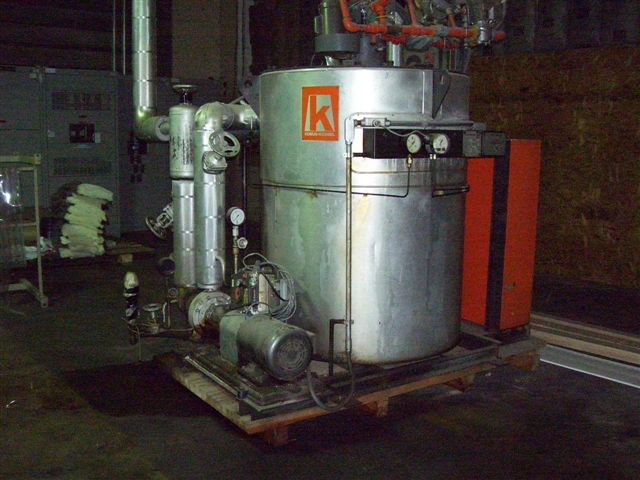
Choose the Right Heating Oil Supplier
When the chill of winter settles in, one of the most important decisions a homeowner can make is selecting a reliable heating oil supplier. Heating oil is crucial for keeping your home warm during the colder months, and finding the right supplier can make a significant difference in terms of service quality, cost-effectiveness, and reliability. In this blog post, we’ll walk you through how to choose the right heating oil supplier for your home, ensuring you make a well-informed decision that will keep you cozy all season long.
1. Understand Your Heating Oil Needs
Before you start looking for heating oil suppliers, it’s essential to assess your specific needs. The amount of oil you use depends on factors such as the size of your home, insulation quality, heating system efficiency, and local climate conditions. If you’re unsure about your oil consumption, check your previous year’s oil usage or consult with an energy expert.
Knowing your consumption levels will help you identify whether you need a supplier that offers automatic delivery or if a will-call (on-demand) delivery service is more suitable for you. If you prefer not to worry about running low on oil, automatic delivery based on your usage pattern may be more convenient. On the other hand, if you’re a seasonal user or have a smaller home, will-call delivery may be sufficient.
2. Research Heating Oil Suppliers in Your Area
Once you’ve clarified your needs, start researching heating oil suppliers in your area. Look for companies that provide services in your specific region, as some suppliers may only deliver to particular areas. You can start by asking friends, family, or neighbors for recommendations. Local feedback is often the best way to find reliable companies.
Additionally, check online reviews and ratings on platforms such as Google, Yelp, or specialized heating and energy forums. Customer experiences can give you valuable insight into the quality of service, delivery times, and overall satisfaction. Make a list of potential suppliers that have a good reputation in your community.
3. Compare Prices
Price is one of the most critical factors when choosing a heating oil supplier. Prices can fluctuate depending on factors like market conditions, delivery fees, and the time of year. To make an informed decision, it’s essential to compare pricing from different suppliers in your area.
Heating oil prices are usually quoted in terms of cost per gallon. Keep in mind that the cheapest option might not always be the best. Some companies may charge low prices but tack on hidden fees for delivery, service calls, or emergency deliveries. Ask for a breakdown of the total cost, including taxes, delivery fees, and any other additional charges.
You may also want to inquire about price protection plans. Some suppliers offer fixed-rate plans where the price per gallon remains the same throughout the season. Others offer capped-rate programs where prices are capped at a certain level, providing some protection from price spikes.
4. Consider Delivery Options
Not all heating oil suppliers offer the same delivery services. Depending on your needs, you should check whether a supplier can meet your preferred delivery schedule. Here are some common options:
- Automatic Delivery: Many heating oil companies offer automatic delivery based on your consumption patterns. With this service, the supplier monitors your oil usage, either through a gauge on your tank or an algorithm that tracks usage, and automatically delivers oil when you’re running low. This option is convenient if you don’t want to worry about tracking your oil levels and ensures you never run out.
- Will-Call Delivery: If you prefer more control over when your oil is delivered, will-call delivery may be a better option. With will-call, you’re responsible for ordering oil when you need it. While this offers more flexibility, it does mean you need to monitor your oil levels closely to avoid running out.
- Emergency Delivery: Emergencies happen, and some suppliers may offer expedited delivery if you suddenly run low on oil. If you live in a colder climate or have an older heating system, it’s a good idea to check whether a supplier can provide emergency deliveries at an additional cost.

5. Evaluate Customer Service
Good customer service is crucial when dealing with any service-based business, and heating oil suppliers are no exception. During winter, you may need support if your oil tank runs low or if you encounter problems with your heating system. A responsive and knowledgeable customer service team can make a big difference in resolving any issues quickly.
Test the supplier’s customer service by calling or emailing with some basic questions before committing to a contract. Are they polite, helpful, and responsive? Do they provide clear answers to your questions and make it easy to access information when needed? A company that prioritizes good customer service will likely provide you with a better experience throughout your relationship with them.
6. Check for Licenses and Insurance
Heating oil suppliers must adhere to local, state, and federal regulations to ensure they’re operating legally and safely. Before choosing a supplier, verify that they are fully licensed and insured. A licensed supplier is obligated to follow industry standards, and their insurance will protect you in case of damage or accidents during delivery.
Look for companies that are members of industry associations such as the National Oilheat Research Alliance (NORA) or local trade groups. Membership in these organizations often signifies a commitment to high standards of safety, customer service, and environmental responsibility.
7. Consider Sustainability Practices
As consumers become more environmentally conscious, many homeowners are looking for sustainable energy solutions. While heating oil is a fossil fuel, some suppliers offer more eco-friendly options. Look for suppliers that provide biofuels or cleaner-burning heating oil alternatives that produce fewer emissions.
Additionally, check if the company has adopted any energy-efficient practices, such as using fuel-efficient delivery vehicles or offering energy audits for homes. While switching to a renewable energy source may not be feasible in the short term, supporting companies that prioritize sustainability can contribute to reducing your carbon footprint in the long run.
8. Review Contract Terms
Some heating oil suppliers require customers to sign contracts, especially if you’re opting for automatic delivery or a fixed-price plan. Always read the terms and conditions carefully before committing. Pay attention to details like contract duration, cancellation fees, delivery minimums, and any penalties for missed payments or early termination.
If a supplier offers flexible terms without long-term commitments, that might be a better option if you’re uncertain about the relationship. Flexibility allows you to change suppliers if your needs or circumstances change.
9. Ask About Maintenance and Additional Services
Finally, consider whether the supplier offers additional services that might be beneficial for you, such as oil tank maintenance, heating system inspections, or repairs. Some companies offer package deals where you can bundle oil delivery with maintenance services at a discount.
Regular maintenance of your heating system and oil tank can extend their lifespan and improve efficiency, so it’s worth asking about these services before making your decision.
Conclusion
Choosing the right heating oil supplier is a crucial decision that impacts both the comfort of your home and your wallet. By carefully assessing your heating oil needs, comparing prices, evaluating customer service, and considering delivery options, you can find a supplier that meets your requirements and ensures a warm, reliable heating season. Don’t forget to research sustainability practices, maintenance offerings, and contract terms to ensure you’re making the best long-term choice for both your home and the environment.







